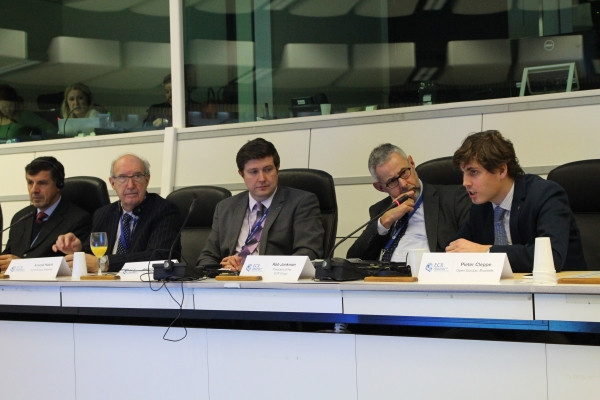ECR workshop calls for a decentralised, bottom-up system of EU governance

A European Union that puts localism at the heart of its plans for the future was the main message from the ECR Group in the European Committee of the Regions' debate on the future of the EU and territorial vision.
Chaired by Andrew Lewer MEP, the debate on Wednesday 7 December 2016 brought together local and regional politicians with representatives of the EU institutions to discuss ideas and elaborate on future policy that will help shape the future of the EU.
With Brexit and the recent Italian referendum putting pressure on the EU to reform, there were plenty of suggestions and considerations raised by attendees, including the need for the decentralising of powers from the EU to national and local governments, with a greater focus on planning for the future.
Speaking at the debate, Andrew Lewer MEP said: "The EU is faced with many challenges as a result of recent political changes across Europe. Now is the time to start planning for the future."
"With the second largest economy in the EU leaving, there will be implications to the EU budget. The EU should not have illusions of an increased EU budget in the future, which is why we call for the decentralising of powers to save money and make the EU more effective."
Other points advocated for bottom-up policy making in cohesion policy where the exercise of power is made at the lowest practicable level involving citizens.
As CoR rapporteur for Territorial Vision 2050, ECR Vice-President Oldřich Vlasák argued for a stronger bottom-up approach in future EU policy to achieve more balanced growth and development.
Mr Vlasák, Councillor of the city of Hradec Králové, said: "Local and regional authorities are best-placed to help configure the future of the European project, so we must involve them and use their knowledge of their citizens' needs to create a better functioning EU, particularly in the area of Cohesion Policy."
As a member for Northern Ireland, Alderman Arnold Hatch, rapporteur for the CoR opinion on Supporting Young European Farmers, expressed his concern about the impact of Brexit on the agriculture sector in his region, as well as ways to currently improve farming across all Member States.
"It is clear to me that we face many similar challenges with national, regional and local authorities in all EU Member States when it comes to agriculture", Mr Hatch said. "We believe that the agri-food sector should be the focus of targeted proposals on job creation, growth and investment to ensure that the EU's agriculture and food industries realise its significant potential and maintains a competitive position on the world market." Other guests included Pieter Cleppe, Head of Open Europe in Brussels, who was joined by the ECR Group's President Rob Jonkman, Alderman of the municipality of Opsterland.

